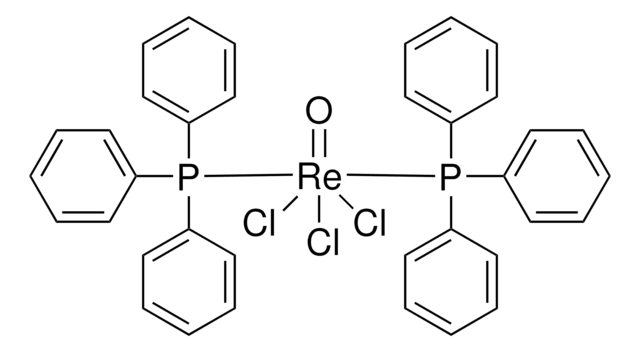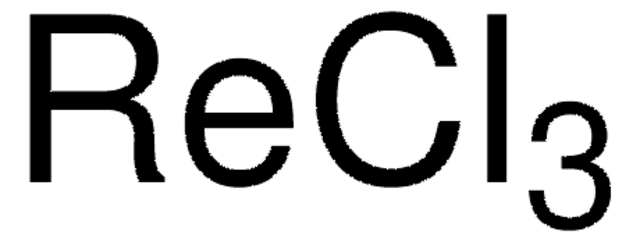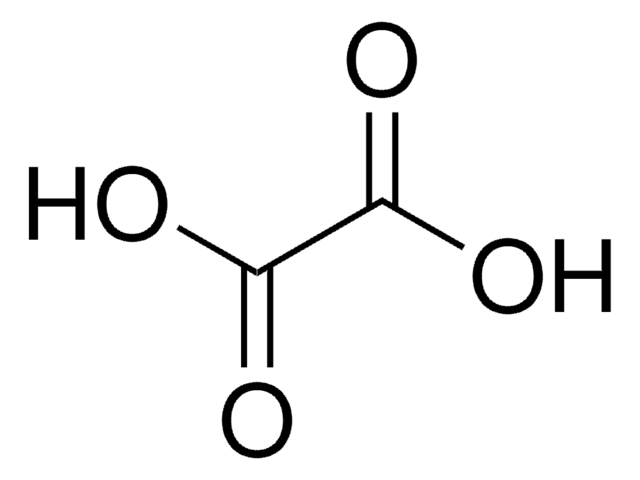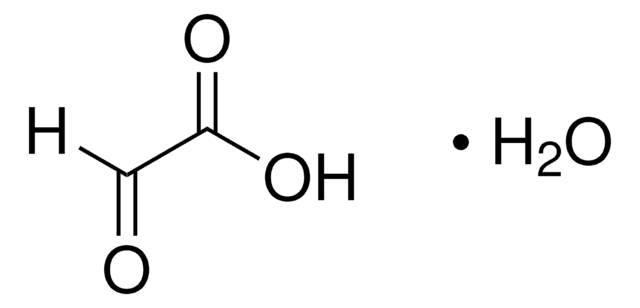All Photos(3)
About This Item
Empirical Formula (Hill Notation):
C18H16N2O
CAS Number:
Molecular Weight:
276.33
Colour Index Number:
49700
Beilstein:
2379761
EC Number:
MDL number:
UNSPSC Code:
12171500
PubChem Substance ID:
NACRES:
NA.47
Recommended Products
form
powder
Quality Level
composition
Dye content, 60%
technique(s)
titration: suitable
mp
168-170 °C (lit.)
λmax
606 nm
application(s)
diagnostic assay manufacturing
hematology
histology
storage temp.
room temp
SMILES string
CN(C)c1ccc(cc1)\N=C2/C=CC(=O)c3ccccc23
InChI
1S/C18H16N2O/c1-20(2)14-9-7-13(8-10-14)19-17-11-12-18(21)16-6-4-3-5-15(16)17/h3-12H,1-2H3/b19-17+
InChI key
VRZJGENLTNRAIG-HTXNQAPBSA-N
Looking for similar products? Visit Product Comparison Guide
General description
Indophenol Blue is used to colorimetrically measure N-containing compounds. The free amino acids react to form a blue color complex.
Storage Class Code
11 - Combustible Solids
WGK
WGK 3
Flash Point(F)
Not applicable
Flash Point(C)
Not applicable
Personal Protective Equipment
dust mask type N95 (US), Eyeshields, Gloves
Choose from one of the most recent versions:
Already Own This Product?
Find documentation for the products that you have recently purchased in the Document Library.
Customers Also Viewed
Basilio Randazzo et al.
Zebrafish, 14(5), 411-421 (2017-07-06)
The accumulation of nitrogen compounds represents a pivotal problem in the management of fish culture. Several methods were investigated in the last decades for treatment of waste waters, and the use of photocatalytic materials has received increasing attention. The photocatalytic
Luis Abdala-Roberts et al.
Scientific reports, 8(1), 596-596 (2018-01-14)
While plant intra-specific variation in the stoichiometry of nutrients and carbon is well documented, clines for such traits have been less studied, despite their potential to reveal the mechanisms underlying such variation. Here we analyze latitudinal variation in the concentration
Kanae Kobayashi et al.
The ISME journal, 13(10), 2426-2436 (2019-05-30)
Natural abundance of stable nitrogen (N) and oxygen (O) isotopes are invaluable biogeochemical tracers for assessing the N transformations in the environment. To fully exploit these tracers, the N and O isotope effects (15ε and 18ε) associated with the respective
John J Weatherill et al.
Water research, 161, 222-231 (2019-06-15)
Hyporheic zones are increasingly thought of as natural bioreactors, capable of transforming and attenuating groundwater pollutants present in diffuse baseflow. An underappreciated scenario in the understanding of contaminant fate in hyporheic zones is the interaction between point-source trichloroethene (TCE) plumes
Ali Poorkhali et al.
Artificial organs, 43(3), 254-260 (2018-09-06)
A new extracorporeal circuit for hemodialysis was designed with the goal of improving the middle and high molecular weight toxins removal. A recirculation pathway was added to the hemodialysis circuit and relevant pressure regulation was performed along the circuit in
Our team of scientists has experience in all areas of research including Life Science, Material Science, Chemical Synthesis, Chromatography, Analytical and many others.
Contact Technical Service









